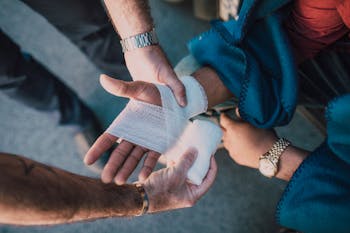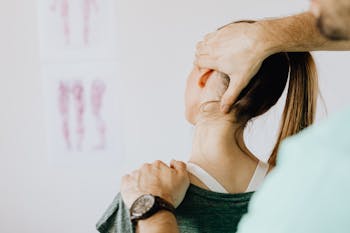Experiencing a personal injury can be a life-altering event, often accompanied by physical pain, emotional distress, and financial uncertainty. Knowing the right steps to take immediately following an injury is crucial for safeguarding your health, protecting your legal rights, and ensuring your long-term well-being. This guide will provide you with a comprehensive overview of the essential actions to take after a personal injury, helping you navigate this challenging time with confidence and clarity.
 Seek Immediate Medical Attention
Seek Immediate Medical Attention
The first and most critical step after sustaining a personal injury is to seek immediate medical attention. Even if your injuries appear minor, it is essential to get a thorough medical evaluation. Some injuries, such as concussions, internal bleeding, or soft tissue damage, may not show immediate symptoms but can have serious consequences if left untreated. A medical professional can accurately diagnose your condition, provide necessary treatment, and document your injuries, which can be vital for any potential legal claims. Prompt medical care can prevent complications and accelerate your recovery process.
Document the Incident
Accurate and detailed documentation of the incident is crucial for both medical and legal reasons. Start by writing down everything you can remember about the accident, including the time, location, and circumstances leading up to the injury. If possible, take photographs of the scene, your injuries, and any property damage. Collect contact information from any witnesses and, if applicable, obtain a copy of the police report. This evidence will be invaluable if you decide to pursue a personal injury claim. Detailed documentation can also help you recall specific details later on, which can be particularly useful during legal proceedings. Additionally, keeping a personal injury journal where you record your daily symptoms, pain levels, and any challenges you face in your recovery can provide further support for your claim. This personal account of your injury’s impact on your life can help illustrate the extent of your suffering and the disruption caused by the incident.
 Notify Relevant Parties
Notify Relevant Parties
Informing the relevant parties about your injury is an important step. If the injury occurred at work, notify your employer and follow the required procedures for reporting workplace injuries. If it happened in a public place or due to someone else’s negligence, inform the property owner or the responsible party. This notification can help establish a record of the incident and is often a necessary step in filing an insurance claim or a legal case.
Consult with a Personal Injury Attorney
Navigating the legal aspects of a personal injury can be complex and overwhelming, especially when dealing with insurance companies and potential lawsuits. Consulting with an attorney or a reliable independent medical examiner can provide you with expert guidance and representation. An attorney can help you understand your rights, evaluate the merits of your case, and negotiate with insurance companies on your behalf to ensure you receive fair compensation for your injuries and losses.
Manage Your Medical Treatment and Follow-Up
Following your initial medical treatment, it is essential to adhere to your doctor’s recommendations and attend all follow-up appointments. Keep detailed records of your medical visits, treatments, and any related expenses. Consistent and documented medical care not only aids in your recovery but also strengthens your personal injury claim by demonstrating the extent and impact of your injuries.
 Keep Track of Expenses and Financial Losses
Keep Track of Expenses and Financial Losses
Personal injuries can lead to significant financial burdens, including medical bills, lost wages, and other related expenses. Maintain meticulous records of all costs associated with your injury, from medical treatments and medications to transportation and home care. This comprehensive documentation will be crucial for calculating the full extent of your financial losses and seeking appropriate compensation through an insurance claim or legal action.
Dealing with a personal injury can be a daunting and stressful experience, but taking the right steps immediately after the incident can make a significant difference in your recovery and legal outcomes. By seeking prompt medical attention, documenting the incident, notifying relevant parties, consulting with a personal injury attorney, managing your medical treatment, and tracking your expenses, you can protect your health and your rights. Remember, you don’t have to navigate this challenging time alone—professional assistance is available to help you through each step of the process.





